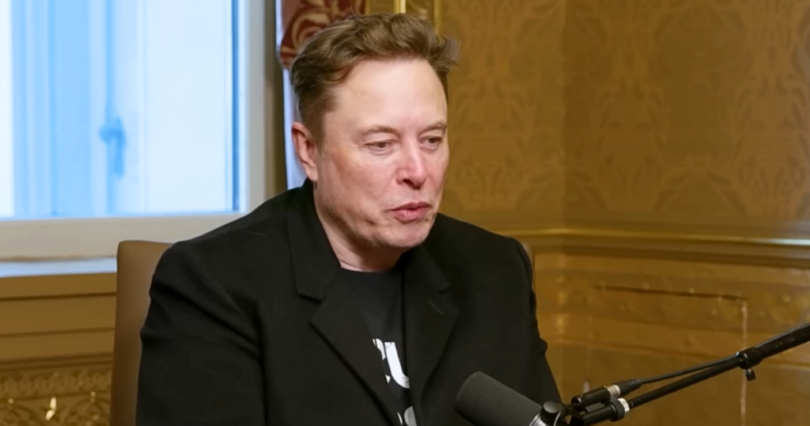Elon’s DOGE Uncovers Government ‘Magic Money Computers,’ Says Billions Spent Without Oversight
Elon Musk is raising alarm over what he describes as hidden government spending mechanisms that bypass congressional oversight. In a recent interview with Texas Sen. Ted Cruz (R), Musk alleged that multiple U.S. agencies are using “magic money computers” to issue massive, unverified payments without proper accountability.
Our podcast with @ElonMusk is making serious headlines.
He takes a deep-dive into what DOGE has found in the federal government.
Download Verdict wherever you get your podcasts!https://t.co/WGlGPSDbrr pic.twitter.com/tdQSqbUCJf
— Ted Cruz (@tedcruz) March 18, 2025
According to Musk, these systems make it impossible for lawmakers to track the true scale of federal expenditures.
Musk’s team at the U.S. Department of Government Efficiency (DOGE)—a division created under President Donald Trump to streamline federal operations—identified at least 14 such computers operating within key agencies, including the Treasury, State and Defense Departments. The alleged discovery raises concerns about financial transparency and government accountability.
During the conversation on Cruz’s podcast, Musk detailed how these computers execute transactions without requiring documentation to justify the payments.
“They’re mostly at Treasury,” Musk said, according to Trending Politics. “But there’s some at [Health and Human Services], there’s one or two at State, and some at [the Department of Defense].”
Cruz reacted with alarm, suggesting that these systems could be responsible for trillions in undisclosed spending. Musk estimated that discrepancies in department budgets could reach 5 percent, an amount that could translate to massive financial misreporting when presented to Congress.
“You may think that government computers all talk to each other, synchronize, and that the numbers you’re presented as a senator are actually real. They’re not,” Musk stated.
Cruz pressed Musk on how the system operates.
“How does it work?” he asked.
Musk responded bluntly, “It just issues payments!”
The revelation has fueled concerns over whether the Treasury Department and other agencies are accurately reporting expenditures. As of now, Treasury officials have not publicly addressed Musk’s allegations.
Musk’s statements have sparked debate among economic analysts, with some arguing that his concerns highlight a well-known but poorly understood aspect of federal spending. The U.S. government operates under modern monetary theory (MMT), which holds that the Treasury can create money as needed to finance government operations, according to TP.
Critics of MMT warn that unchecked money creation risks inflation and financial instability, while supporters argue that it allows the government to fund crucial services.
Journalist Laura Windsor questioned Musk’s motives, suggesting that his statements might be aimed at undermining trust in the Treasury Department.
“Either Elon is dumb, which we know he’s not, or this is a cynical ploy to undermine trust in Treasury. @SecScottBessent should tell us whether he agrees with this,” she posted on X.
"magic money computers" = Treasury Dept issuing electronic payments
Either Elon is dumb, which we know he's not, or this is a cynical ploy to undermine trust in Treasury. @SecScottBessent should tell us whether he agrees with this 👇 https://t.co/q8mAiPTeS7
— Lauren Windsor (@lawindsor) March 17, 2025
Meanwhile, The Debt Collective, an activist group focused on student loan forgiveness, partially backed Musk’s claim.
“They’re actually kinda correct,” the group wrote. “The federal government issues money out of thin air.”
“It’s not like a household that needs a dollar before spending it. The gov is the issuer of the dollar—so it creates it.”
“We can either use it to pay for healthcare or fund wars overseas.”
They're actually kinda correct. The federal government issues money out of thin air. It's not like a household that needs to have a dollar before spending it. The gov is the *issuer* of the dollar—so it creates it. We can either use it to pay for healthcare or fund wars overseas. https://t.co/7APl6AumVf
— The Debt Collective 🟥 (@StrikeDebt) March 17, 2025
During the interview, Musk also made a startling claim: he has faced “attempts on his life” since becoming a special government employee under Trump. However, he did not elaborate on the nature of these threats or provide evidence to support his statement.
Musk’s agency, DOGE, has been under increasing scrutiny as he and his team work to validate claims that they have saved taxpayers $105 billion since Trump took office. While Musk and his employees have provided documentation of these savings, some of the receipts were taken offline.
Musk has stated that the records will be re-uploaded at a later date.
Scroll down to leave a comment and share your thoughts.


Leave a Comment